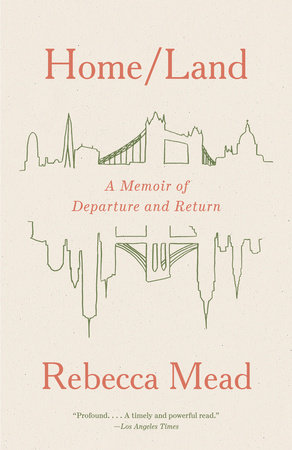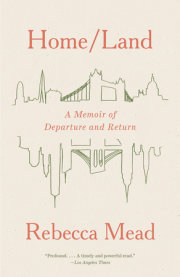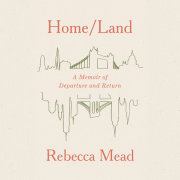A few years ago, when my son was in middle school, he would every so often ask me an odd question:
What’s your favorite apocalypse?
What do you mean? I would ask, puzzled and a bit impatient. The apocalypse isn’t a color, or an ice cream flavor, or a band, or a book. It’s not the kind of thing you have a favorite of.
If you had to choose, Rafael, my son, would say. I know you don’t want any apocalypse in real life, obviously. But if you had to pick one, what would it be?
He would offer alternatives. Would I prefer an apocalypse of fire and explosions, burning forests to the ground and reducing cities to rubble? Or an epidemic: contagion spreading ruthlessly from person to person and nation to nation? Or would I choose his own personal favorite, a zombie apocalypse, hiding out in the woods with a stash of rations, building shelters from sticks, starting campfires with birch bark and twigs, on the run from legions of the living dead who march through the land with their arms outstretched before them, shredded skin hanging from their limbs, eyes rolled back in their skulls?
His own eyes would shine as he described this last permutation of the end of the world, and I would know where his favorite apocalypse was set: at summer camp. For a few years, he attended an all-boys camp in the mountains of Vermont, trading his Brooklyn bedroom for a rustic cabin overlooking a lake. There were lessons in knife skills and fire-starting skills. There was a climbing wall, strenuous hiking and a fair bit of idling--at least that was what my husband, George, and I could discern from the very occasional letters our son wrote home. One time, we received a long letter in which he confessed to having accidentally set a patch of hillside on fire when he and a couple of other campers were playing around with a contraband box of matches. What could have been a disaster was turned into a cautionary lesson--the three boys had their fire privileges revoked for the rest of the season. The envelope was covered with penciled postscripts, scrawls of mortification, though later he would turn the story into a comic anecdote--that time when some real-life danger intruded into the highly curated pseudo-risk that the camp specialized in.
The camp was intensely rustic, with no electricity in the cabins, and no flushing toilets. (A cup full of sawdust tossed down the black pit: that’ll take care of things.) There were bonfires and cookouts and thrilling mass games conducted by flashlight and moonlight. Every session ended with a banquet for which inventive counselors decked the dining hall with festooned greenery and papier-mâché sculptures, like a stage set, then dressed up in costumes like something from A Midsummer Night’s Dream. The camp had been founded on Quaker ethics, which had morphed by the 2010s into an observance of secular, progressive principles: campers and counselors stated their pronouns upon arrival. The environment offered an antidote to the popular culture in which boys like my son were daily immersed: electronics were forbidden, and there were no movie nights or candy Fridays, as there were at some of the camps his friends went to. At the same time there was also a highly intentional intensification of the contemporary currents of liberal parenting as they were observed in the part of brownstone Brooklyn in which I lived. Lord of the Butterflies--that was how I thought of the place. I was enchanted by so much about it; and at the same time, it drove me a little crazy.
So it was clear where my son imagined his favorite apocalypse transpiring--there, in the sun-warmed freedom and privileged primitivism of a Vermont summer. Meanwhile, he got his apocalyptic ideas, his rich array of alternative end-times, from a culture saturated with entertainment that offered the enticements of incipient destruction and violent demise. At the bookstore, he’d be drawn to thick volumes with lurid cover images--a scythe-bearing, hooded silhouette, or the close‑up quadrant of a young face that was not so different from his own, with brown hair flopping over a green eye, though the skin in the illustration was pallid and gray and the terrified eye was rimmed with rust-red shadow.
When we rode the subway together, he studied the movie posters featuring cataclysmic images plastered on the platform walls: the White House in flames, helicopters circling overhead while a tattered American flag burned; a cityscape of scarred skyscrapers and crumbling bridges. There were images of square-jawed men equipped with exoskeletal body armor and guns so oversized that the combatants would surely stagger under the weight of them, like the kids who haplessly attempted to wield foot-long water pistols in summertime battles at the playground. There were images of good-looking teens advancing warily through dense forest growth, armed with improvised cudgels or lances and dressed in ragged sweatshirts, bearing camouflage-print backpacks like the one my son had insisted on buying at an Army surplus store and which he was forever filling with supplies for an impending evacuation or escape: a Nerf gun, a compass, a pocketknife, a notebook.
The posters were alarming and beguiling. There was a glamour and excitement to the various catastrophes they portended--as palpable to me as it was to my son, even as I would attempt to steer him down the subway platform to a cozier poster from a cartoon or a comedy while deflecting his persistent questions about what was represented in these action-movie images, the firepower of their weapons and the volatility of their civilizations.
“We’re all going to die!” one of Rafael’s classmates shrieked excitedly when George and I dropped him off in the playground of his middle school, a few blocks from our house, the morning after the presidential election. Our son joined the throng of children competitively comparing notes on the night before--who’d seen the shocking result coming first, who’d stayed up the longest, whose parent had cried--while George and I went to walk in circles around the hilly, verdant park at the end of our block, turning over what had transpired as we passed beneath old-growth trees. For months, I’d been in a state of agitation, experiencing an anxious constriction that I knew only from the most grief-stricken moments of my life--during the serious illness of a loved one, or when a difficult work environment had curdled and become intolerable. The edges of my consciousness had turned shadowy. I felt as if my existence had contracted, shrunk down to a meager tunnel of survival. But I had anticipated that relief was inevitable, and that the shadows would begin to clear.
Now, it seemed, the darkness was only at its beginning. We could leave, George and I started to whisper to each other as we walked through the park in the days and weeks and months that followed. Should we leave? When will we know whether we should or not? When will it be too late? We thought of George’s paternal grandparents, who fled their home in Vienna with my father-in-law, then eight years old, and his older brother only when they learned their names were on a list to be rounded up the next day. We engaged in our own apocalyptic imaginings, watching with despair that was renewed daily as the news unfurled. This isn’t that, we told ourselves. But what this was, we didn’t yet know.
Periodically, my cellphone now sends me photographic reminders of those days: You have a new memory, it tells me, as if I have forgotten the march in Washington, with the tip of the Washington Monument wreathed in mist and the hordes milling on the Mall. The next day, I slumped in the passenger seat of my friend Nancy’s car on the return journey to New York, my son and her daughter listless in the backseat, their cardboard protest signs creased and shoved in the trunk. Nauseated, either from fatigue or fear, even before we set off, I vomited into a ziplock bag as Nancy drove, then gazed weakly out of the window into the imperceptible distance. Another memory: a rally a few days later, at the Battery in downtown Manhattan, my son’s face pinched beneath the hood of the blue winter coat in which he is bundled up, the sky clear and astringent, so cold that before the protest was over my feet were numbed through the thick soles of my boots.
We’re going to spend every weekend marching, we said to ourselves back then, though we didn’t, of course. When I scroll through photos of that time, and the months that followed, I see ordinary life, too: images of Rafael dressed in an academic gown and gray V‑necked pullover, improvised Hogwarts, for a literary-themed costume party at school--it was that kind of school--or grinning goofily with a friend on the waterfront at Brooklyn Bridge Park at dusk, the Manhattan skyline framed behind them and the wide East River glistening. There are images of Rafael with his arms gleefully thrown around his big brothers, George’s three older sons--all grown men now, though when I first knew them they were still a distance from adolescence, the oldest barely thirteen, the younger ones eleven and eight. There’s Rafael’s twelfth birthday party, held in a playground near our house, with water pistols and cupcakes and a gaggle of kids, wet-haired from the sprinklers and glowing in the early-summer heat. There’s an annual camping trip with friends to Fire Island, where the kids frolicked in the cold surf of the Atlantic by day and played after sunset on the shore, wheeling through the darkness with colored lights attached to their fingers. We adults drank red wine from plastic mugs and talked about the books that we’d been reading under our beach umbrellas that afternoon while doing our best to ignore the headlines on our phones. Inevitably, we would end up discussing the news anyway: the executive orders signed, then contested in the courts, then tweaked and signed again; the belligerent tweets and the xenophobic pronouncements--each proposed policy testing the limits of what, moment by changing moment, the law and the popular mood would allow, with a relentlessness as incremental and as erosive as the ocean’s encroaching tide.
And there are shots of visits to England, where I was born and grew up, and where I lived until I was twenty-one and moved to New York for what I thought would be only a year, though it turned out I was still in the city three decades later. Here’s my son, swimming in the cold, clear water of the bay on which my seaside hometown lies, in the southwest of the country, the pebbles visibly gleaming beneath the calm surface. Here he is in the nave of the church just a few miles from my childhood home in which a seventeenth-century clergyman gathered a group of would‑be settlers to sail to the New World, among them--the coincidence amazed me--one of George’s maternal ancestors. Here is Rafael again, lounging on the bulbous, modernist couch in the lobby of the fancy London hotel where we scored a discount on a room. The hotel was near Trafalgar Square, and we walked to the National Gallery, where we stood before the painting by Hans Holbein, The Ambassadors, which depicts two French noblemen, swathed in rich furs and silks, who have been dispatched to the court of Henry VIII. Beneath them is rendered a puzzling, distorted black-and-white smear, which, when viewed from the correct angle, resolves into the image of a skull. It’s a memento mori, George explained to Rafael. That means a reminder of the inevitability of death.
The photo roll on my phone does not show exactly where in this progression of time our own fretful half-formed thoughts of leaving New York resolved into a more concrete image. It does not capture the conversations George and I started to have as we circled the park on our afternoon walks, the arguments we started to stack on one side or the other, as what had begun in a sickened impulse toward flight--we could always leave--began to press upon us as a compelling plan, even a hopeful one. If the steady, vile drip of our newsfeeds had something to do with our sense of destabilization, there were other factors at work, too. We were ready to be set in motion, to veer from what seemed to be the predictable path of our lives.
For a while now, George and I had talked, or at least fantasized, about making a change. When we rode our bikes through different parts of the city, we wondered what it would be like to live closer to the river, or to occupy a glassy modern apartment instead of our creaking, dilapidated nineteenth-century house. We had once been seized with a feverish, weekend-long notion of getting a place out of town and drove a rental car to Long Island, where a realtor took us to see what was available in our very theoretical price range: a clapboard fixer-upper with sagging steps and an unconvincing roof; a bare-bones, open-plan cabin with an aspect onto its own gravel parking space. We drove home with that particular fever having broken, but a sense of restlessness remained.
The restlessness was not really about moving house--although moving house, even from one part of Brooklyn to another, might have relieved the itch for a while. It was, rather, an increasingly urgent questioning of whether we could sustain the structure of the life we had built together so far, and whether we wanted to. For as long as George and I had known each other our plans and decisions had been more haphazard than not, influenced by impetuosity as much as by common sense, though we could often make plausible arguments for our choices in retrospect. Unlike some remarkably organized people whose habits I’d observed, we had formulated nothing so concrete as a five- or ten-year plan: here is when we will trade one domicile for another; here is how we will cover our rising health insurance costs; here is how we will pay for college; here is where we hope to end up, when our past extends back much further than our future looks forward. Rather, we had the habit of sorting through our situation in conversation moment by moment, probing alternatives and floating possibilities. We could do this. We could do that. But how about doing the other?
As we circled the park, walking and talking, hitherto unspoken urges coalesced and were given utterance. There was a buried yearning, on my part, to endow my son with a real sense of his dual-national heritage--for him to know England not just as a fun place to go on holiday, but as a culture he could move through with ease and confidence, a place that was not just mine, but his. Rafael was still young enough to be moved and transplanted to a different educational system, but with high school around the corner, he wouldn’t be much longer. The chance would be lost if we didn’t take it now. There was a weariness, on George’s part, with the ever more burnished, ever more capitalistic glossiness of New York, a city which he had left and returned to multiple times in the decades before he met me.
Copyright © 2022 by Rebecca Mead. All rights reserved. No part of this excerpt may be reproduced or reprinted without permission in writing from the publisher.






